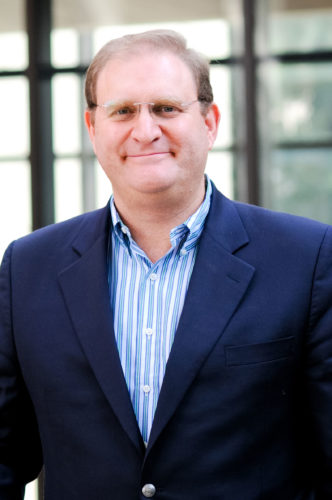Stanford Election-Law Expert Nate Persily on Post-Election Challenges to American Democracy

Nathaniel Persily, the James B. McClatchy Professor of Law, is regarded as one of the nation’s top experts on election law. His work has been cited by the Supreme Court multiple times, he’s been called on to help craft districting plans for numerous states and he literally wrote the book (with others) helping establish the field known as the law of democracy.
Now, Persily is sounding the alarm on the assault on democracy that he says is taking place across America. More than 500 bills have been introduced in state legislatures that would in some cases make it harder for citizens to vote and politicize the nonpartisan administration of elections. Much of this effort flows out of what’s been dubbed the “Big Lie,” the false notion pushed by former president Donald Trump that the 2020 election was stolen or rife with fraud. Public opinion surveys indicate that a majority of Republicans believe President Biden is not the legitimate office holder.
Does all this foretell the potential decline and demise of American democracy? “Yes, I cannot mince words there,” Persily said recently in an interview for Stanford Legal. “We are at a critical juncture right now and I do not know what the future holds. But in the next two to four years, the decisions that are now being made will chart a course for whether we can keep things together with American democracy.”
Headwinds were already in place with the 2020 election, which Persily says came close to a “serious meltdown.” That rupture would have happened “had the election been just a little bit closer where, for example, let’s say 20,000 people spread across Georgia and in Arizona had their votes flip.” If the next election comes down to one state, he says, “we are not in a situation right now where we could stand a Bush v. Gore-style stress on American democracy.”
Many of the new and proposed state laws are aimed at rolling back COVID-related changes that allowed greater access to voting, such as 24-hour or curbside voting, and increased mail balloting—an effort that Persily helped shape through the Stanford-MIT Healthy Elections Project, which he co-founded (their report will be published on July 1). “This is really disconcerting,” he says.
But the greater danger, he says, lies in state attempts to undermine election regulation—what he calls “an assault on nonpartisan election administration.” Persily says that “In several states, we’re now seeing a ripping away of authority, either from the Secretaries of State or the local election administrators.” That authority, he says, is instead being placed in the hands of state legislatures or their partisan alter egos “who could, if it’s a close election, put a thumb on the scale.”
In Georgia, a raft of voting restrictions enacted in a new state law effectively discriminates against Black voters, the U.S. Department of Justice said in a suit it filed on June 25 to block the changes. The legal action followed by just a few days a successful effort by Republican lawmakers to stymy sweeping federal voting rights legislation.
Read Stanford’s Nate Persily on Supreme Court’s Ruling that Upholds Voter Restrictions in Arizona
What can be done to right these wrongs? Persily said one recent positive move came when Facebook’s oversight board, composed of law professors, former judges, journalists and the like, voted to uphold the company’s ban on Trump using the social media platform, citing his comments during the Jan. 6 insurrection. Facebook later agreed to suspend the former president for at least two years. Persily said the decision was “very significant,” though he remains skeptical about the body’s long-term viability.
With proposed federal voting laws apparently dead in the water, Persily is looking to legislation where common ground is possible for an assist. “My hope is that, at a minimum, perhaps we can get something into the infrastructure bill—several billion dollars that will then go into election administration coffers. That would be very useful and help a lot.”
But he also suggests that citizens can play a role “throwing as much love toward the local professional election administrators as we can.” By some estimates, half of the veteran election administrators in the U.S. may leave their positions in the next few years. So, he recommends that people with expertise should try to run for those offices or work with them.
At the least, Persily says, “Be the ones who are on the other side of the scale against those who would suppress or make voting more difficult.”
This essay was edited from an interview for Stanford Legal on SiriusXM.
